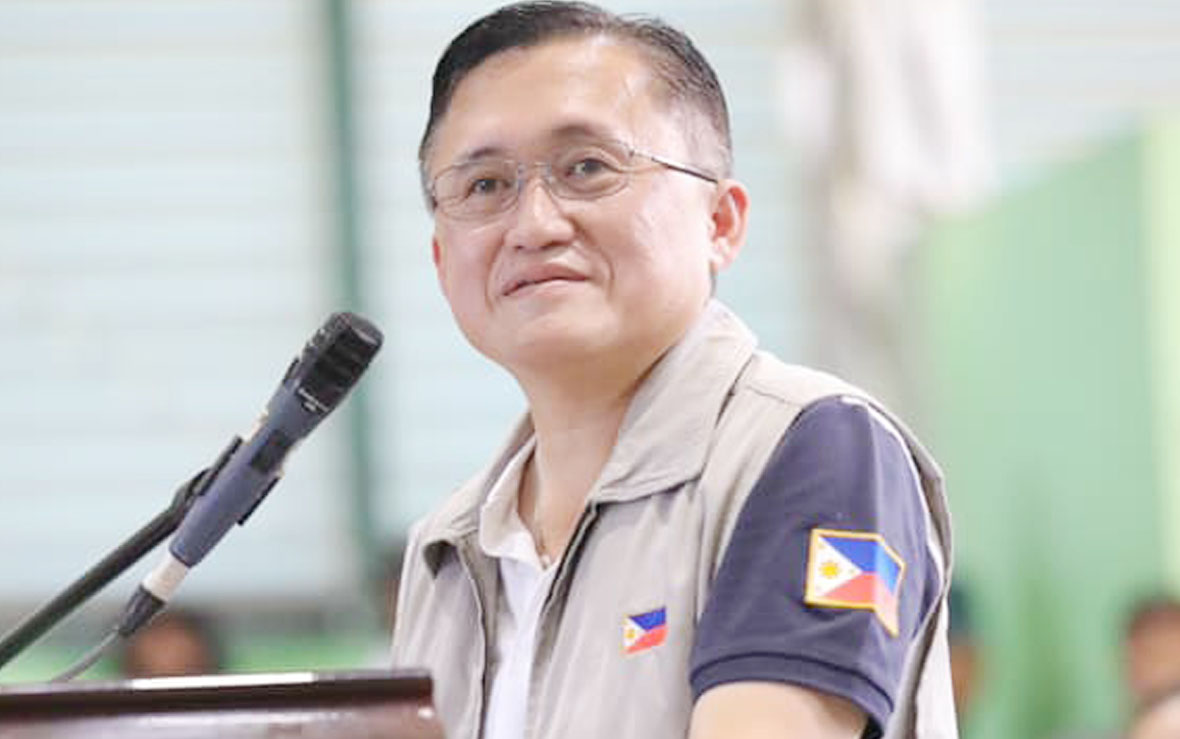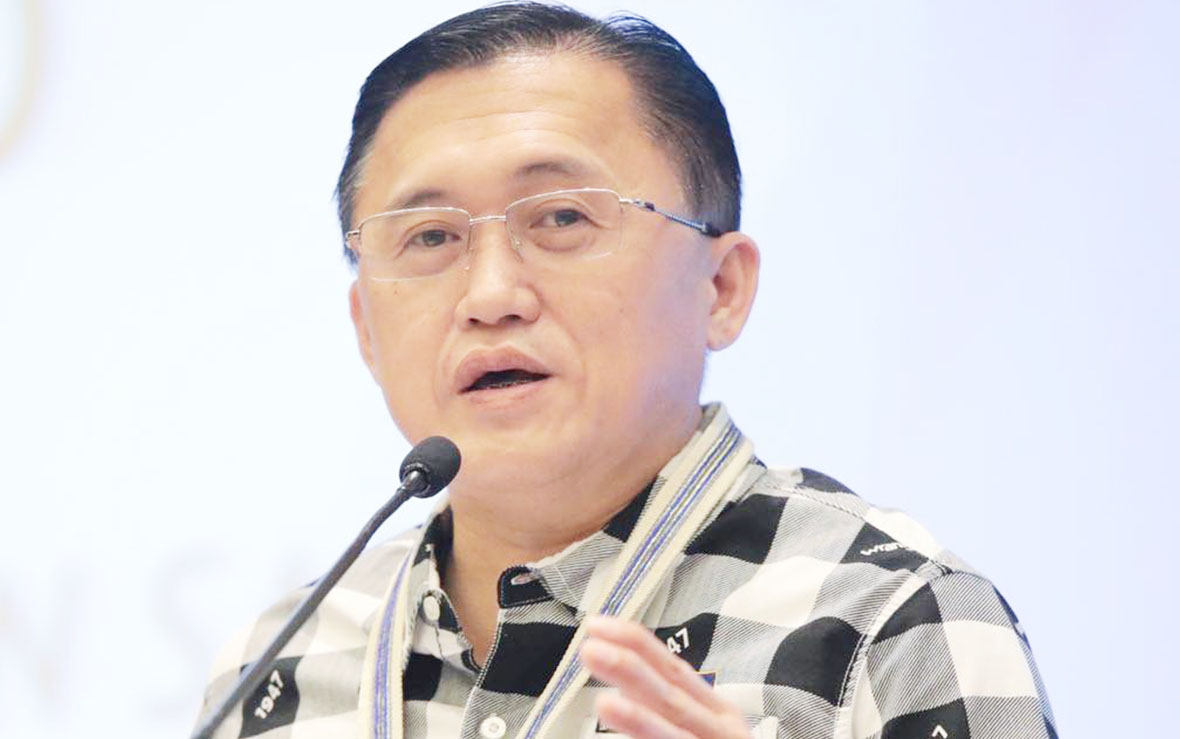While advocating for better healthcare access in the grassroots, Senator Christopher “Bong” Go also commended Barangay Health Workers (BHWs) for their untiring service to their communities during the Provincial Health Information Management System Orientation on Tuesday, October 24, at Brgy. Villarica, Babak District, Island Garden City of Samal, Davao del Norte.
In his speech, Go emphasized the pivotal role of BHWs in bridging the gap in terms of healthcare access by bringing crucial medical services closer to those in need. He underscored the critical aspect of empowering BHWs and other health personnel with the requisite knowledge and tools.
“The Provincial Health Information Management System Orientation is an important part of the larger mechanism aimed at enhancing the quality and accessibility of healthcare in our barangays,” he said in his speech.
“We are not just enhancing our healthcare infrastructure but nurturing the backbone of our community health system through our BHWs,” he added.
During the event, Go extended his appreciation to Samal Mayor Al David Uy, Councilor Sonny Lanorias, City Health Officer Dr. Dennis Carlos Flores, City BHW Coordinator Christine Enriquez Lara, District BHW Coordinator Madilyn Manlapuz and District BHW Federation President Evelyn Pamaus for their dedicated service.
He also provided assistance in the form of gift packs, meals, face masks, vitamins, and shirts to the 201 attendees while select recipients received shoes, phones, bicycles and balls for basketball and volleyball. Around 250 BHWs were also given similar assistance the day before by his staff. He came back the day after, on Oct 25, to aid around 200 more BHWs.
Go, chairperson of the Senate Committee on Health, conveyed his unyielding support for better working conditions and expanded roles of BHWs in their respective communities.
“Kayo ang tunay na bayani sa ating komunidad,” Go said as he commended the relentless efforts of the BHWs.
Go also shared his legislative efforts, highlighting his filing of Senate Bill No. (SBN) 197, the Magna Carta for Barangays, and SBN 427, known as the Barangay Health Workers Compensation Bill.
The Magna Carta for Barangays seeks to provide adequate support for barangays to help them fulfill their responsibilities effectively. The bill proposes that barangay officials, including the Punong Barangay, members of the Sangguniang Barangay, the Sangguniang Kabataan chairperson, the barangay secretary, and the barangay treasurer, receive similar treatment as regular government employees. This means they would be eligible for salaries, benefits, and allowances, among other perks if enacted into law.
Meanwhile, the BHW Compensation Bill is directed towards ensuring rightful benefits and incentives for barangay health workers.
Additionally, Go mentioned SBN 2399, which seeks to declare April 7 as Barangay Health and Nutrition Workers (BHNW) Day, recognizing the vital contributions of BHNWs in community primary healthcare delivery.
In his speech, Go also encouraged the attendees to actively engage, learn, and contribute during the event for the betterment of their profession and to further improve the services they provide in their respective communities.
“The discussions and interactions you will have are the building blocks of a healthcare system rooted in community, empathy, and shared responsibility.”
He expressed hope that the gathering would foster a deeper understanding of health issues, “Nawa’y ang pagtitipong ito ay maging daan din para sa mas mataas na kaalaman sa mga isyu ng kalusugan.”
Meanwhile, Go also shared other equally important efforts to bring public health services closer to grassroots communities. Among these are the continuing operations of Malasakit Centers, the establishment of Super Health Centers in strategic locations nationwide, and the enactment of the Regional Specialty Centers Act which he principally sponsored in the Senate.
Go encouraged those with health concerns to seek medical assistance from any of the 159 Malasakit Centers nationwide. Under Republic Act No. 11463, a law principally authored and sponsored by Go, the Malasakit Centers program brings all relevant agencies under one roof so that poor and indigent patients can conveniently access medical assistance programs to cover their hospital-related expenses.
Meanwhile, Super Health Centers are strategically designed to place emphasis on delivering primary care, offering consultations, and enhancing the early detection of diseases in the grassroots. Through the collaborative efforts of fellow lawmakers, local government units, and DOH, sufficient funds were allocated for 307 Super Health Centers nationwide in 2022 and 322 in 2023. DOH, the lead implementing agency, is tasked with identifying strategic areas for construction.
Moreover, Go also highlighted RA 11959, also known as the Regional Specialty Centers Act, which he principally sponsored and is one of the authors in the Senate. The Regional Specialty Centers Act plays a pivotal role in the healthcare legislative agenda of the Marcos administration, as detailed in the Philippine Development Plan 2023 to 2028. The said law mandates the establishment of Regional Specialty Centers within existing DOH regional hospitals.
“Ipagpatuloy natin na ilapit ang serbisyong medikal sa ating mga kababayang mahihirap na walang matakbuhan kung hindi ang mga government health facilities. Para sa mga mahihirap nating kababayan, napakaimportante po nito dahil iyan po ang kanilang lalapitan po talaga. The more we should support it, the more na mag-invest po tayo sa ating healthcare system,” Go said.
“Kaya importante na mailapit natin ang serbisyong medikal mula gobyerno sa mga taong nangangailangan nito,” he stressed.
On the same day, Go also visited Davao del Norte to join the blessing and turnover of a multipurpose building in Kapalong town. The said project was funded through the support of Go, vice chairperson of the Senate Committee on Finance. Additionally, he made a brief visit to Balay ni Maria, a facility completed in 2020, which primarily served as an isolation center during the peak of the COVID-19 pandemic.


